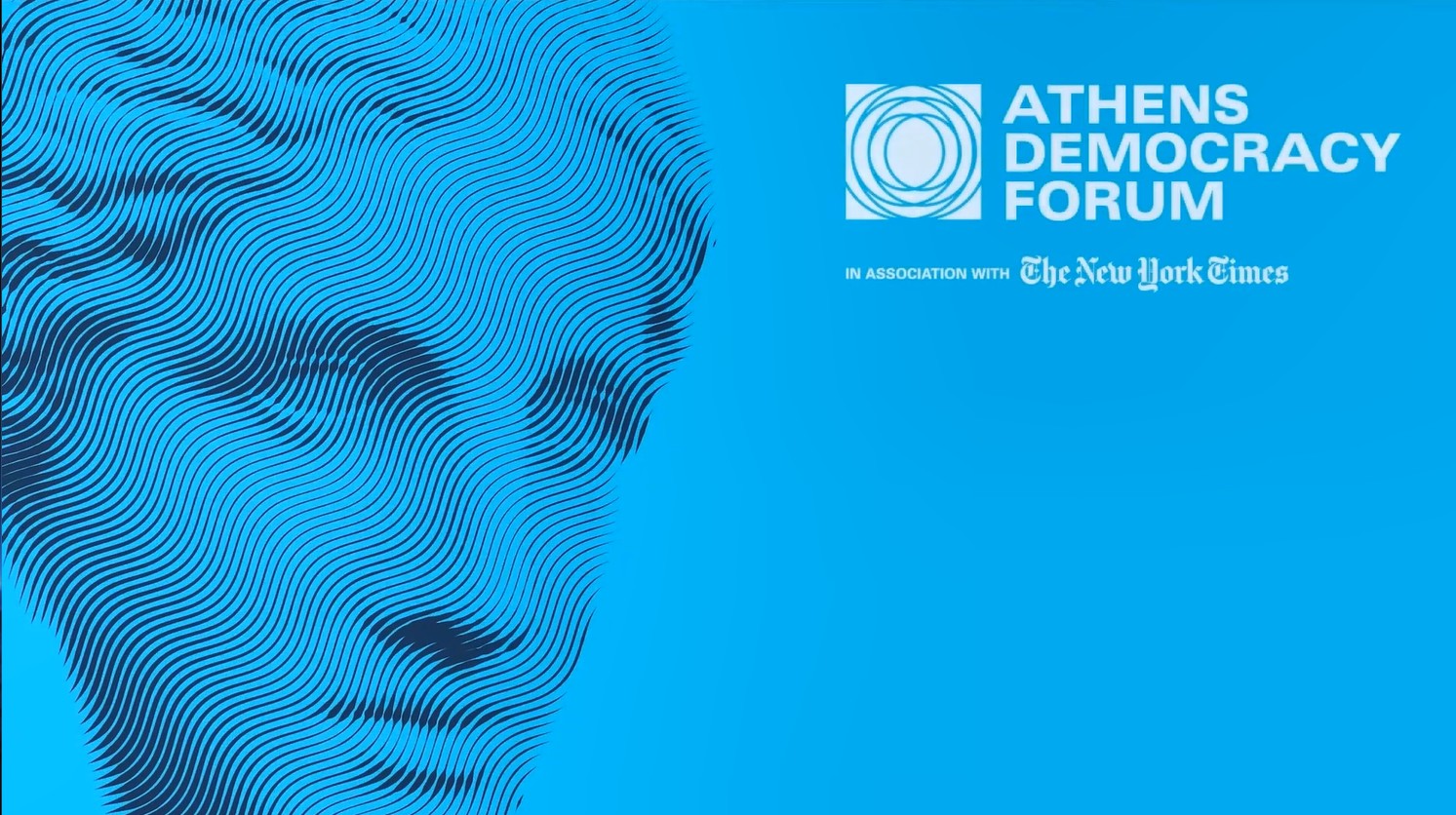Celebrity Media Editor’s Note: Yesterday, we received an email from renowned economist Professor Jeffrey, sent from Athens, Greece, which included a fascinating interview video. Given the content—a conversation with Confucius—we thought it would be most appropriate for Chinese audiences to see it first. Therefore, we’ve adapted the video’s language to Chinese and translated all audio into Chinese to share it with Chinese communities internationally. This video features an interview with a Westerner and an Easterner conducted by a *New York Times* reporter, making it lively and engaging.
This special feature interview focuses on a timeless exchange of ideas: a dialogue between Aristotle, the father of Western philosophy, and Confucius, a master of Eastern thought. These two giants of wisdom represent the pinnacle of Eastern and Western philosophy, offering profound insights into ethics, politics, and social structures that remain relevant to modern society. Their thoughts continue to shape the values of hundreds of millions worldwide, whether in public life or personal moral development.
Aristotle (384–322 BCE), a Greek philosopher, scientist, and educator, is known as the “father of Western philosophy.” He founded formal logic, laid the groundwork for natural science studies, advocated for the pursuit of happiness through reason and virtue, and provided a systematic philosophical framework for human behavior and social governance.
Confucius (551–479 BCE), a great Chinese thinker and educator, was the founder of Confucianism. He championed “benevolence,” “propriety,” and “righteousness,” emphasizing the importance of personal moral cultivation to achieve social harmony. His teachings laid the foundation of traditional Chinese culture and have significantly influenced ethics across East Asia and beyond.
We hope this issue’s content inspires a renewed examination of these two great philosophers’ teachings in today’s world and sparks discussion on how we might integrate their ancient wisdom into modern life.
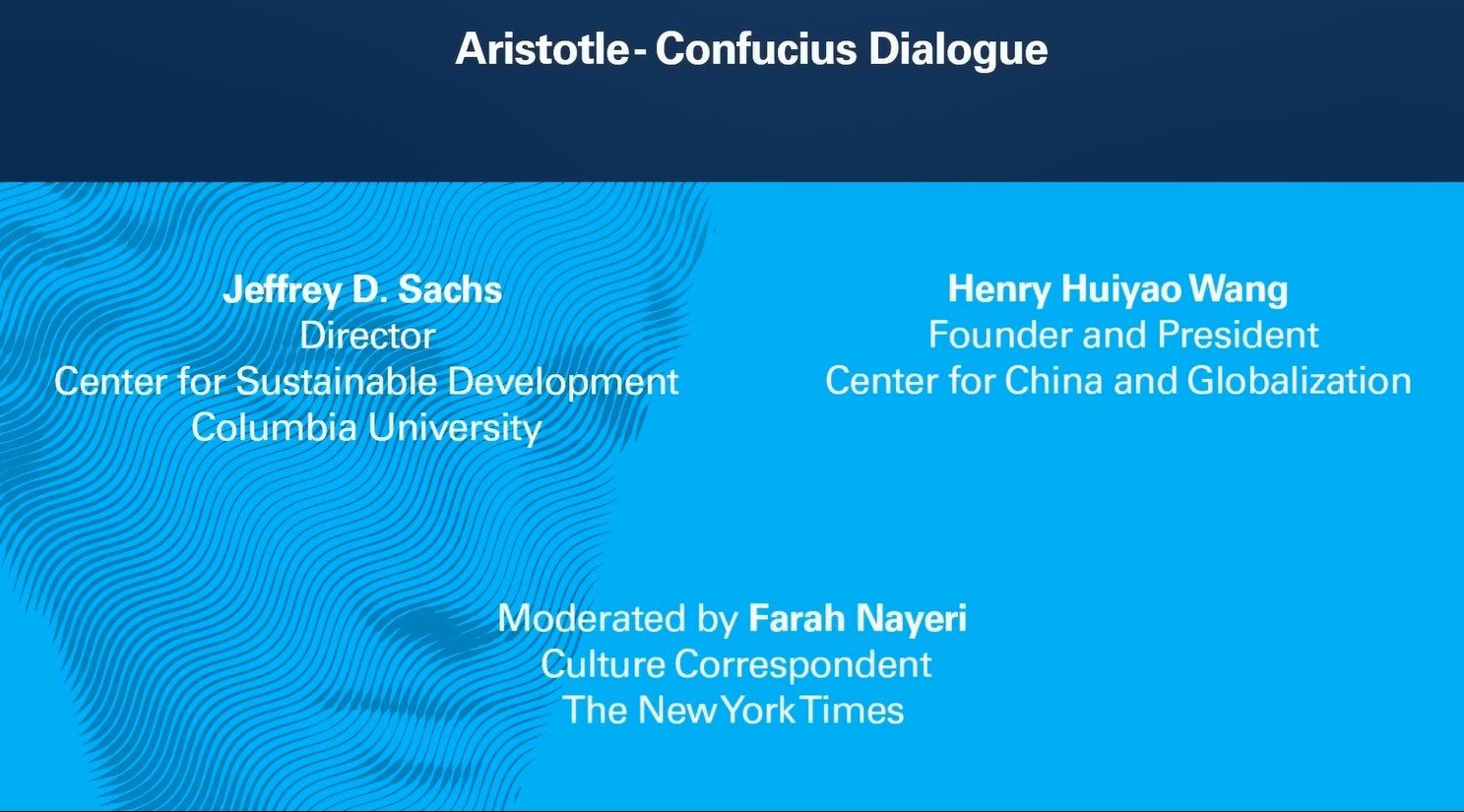
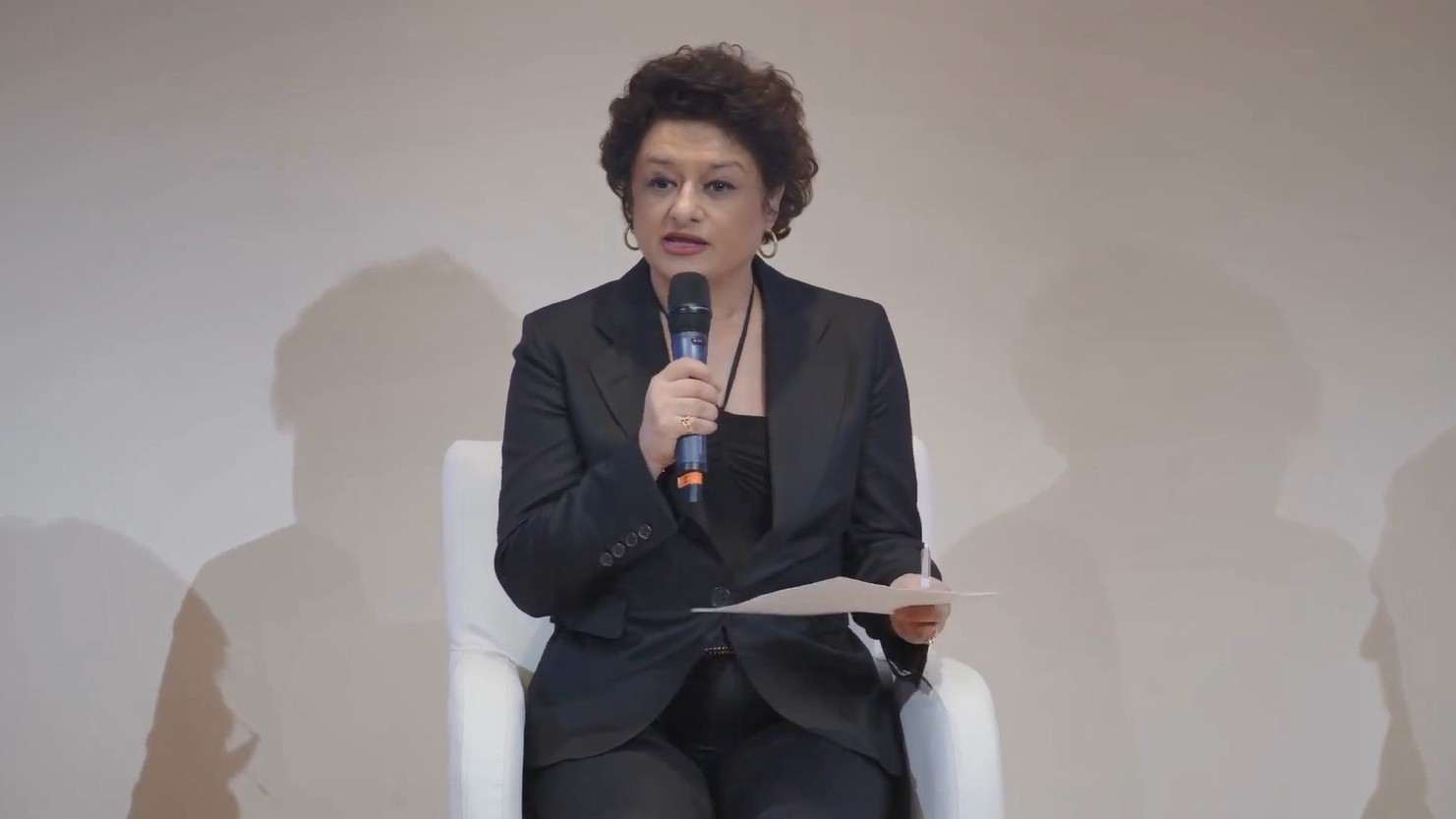
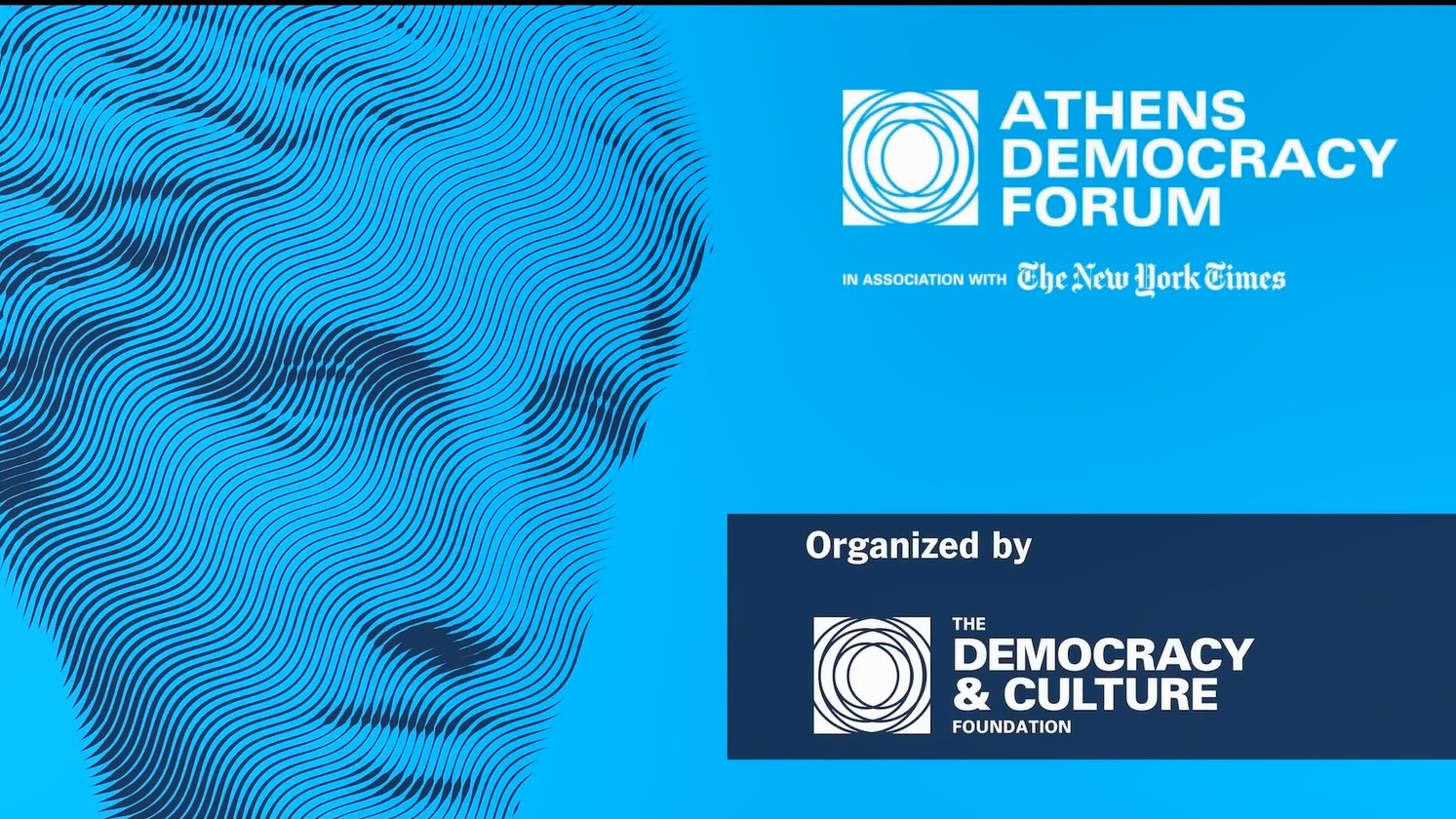
Ladies and gentlemen, good evening. Thank you all for being here, and to those joining us via video, welcome. I am Farah Nayeri, cultural correspondent for *The New York Times*. I’ve moderated many discussions, including those at the Athens Democracy Forum right here, but I can confidently say that tonight's guests are the most eminent philosophers and thinkers I’ve encountered in my lifetime. Tonight, we are in the presence of two of history’s greatest philosophers and thinkers. On my right is the renowned Greek philosopher Aristotle. [Applause] Many consider him the greatest philosopher in Greek history. We are gathered in Athens, a city where I believe he spent much of his life. And to my left, we have Confucius. [Applause] He is one of East Asia's most esteemed philosophers, whose thoughts and principles are revered worldwide, especially in the People’s Republic of China.
It may seem a bit unusual for a woman to moderate this dialogue, as Aristotle and Confucius perhaps held views on women's rights that do not align with our current expectations, and their support for gender equality might not be their strongest suit. I apologize to both for possibly placing them in a slightly awkward position, although, admittedly, such views are not theirs alone; millions of men globally still share similar sentiments today, including in my own country, Iran. I am a forthright Iranian woman, and Aristotle’s perspective was that women should be excluded from political and public life. I have reviewed many historical texts, and this stance is not simply a casual opinion. According to Aristotle, women’s rational abilities are quite limited, as they tend to be more emotional. So tonight, I’ll do my best to keep my emotions in check and respond rationally to Aristotle’s perspectives.
Aristotle believed that although women possessed citizenship—a status he regarded as highly esteemed—they should be under men’s permanent governance in both public and domestic life. As for Confucius, his view was that a woman’s duty lay in managing the household and assuming the roles of wife and mother. Few women, he believed, had the virtue to transcend this role and step beyond the household sphere. Of course, Aristotle’s and Confucius’s views are not isolated; as I mentioned before, even in 2024, nearly 2025, millions of men still hold similar views. So, I’ve decided to set aside the topic of women’s rights for now and turn to a more pressing discussion. It is an incredible honor to engage these two great thinkers and explore their perspectives.
To begin, allow me to address Aristotle first, or perhaps we should refer to him as Professor Jeffrey Sachs, Director of the Center for Sustainable Development at Columbia University. Aristotle, you advocate for virtue, reason, making choices for the public good, moderation, and civic engagement. How do you view the current state of the world, particularly the policies of the United States, a superpower in today’s global landscape?
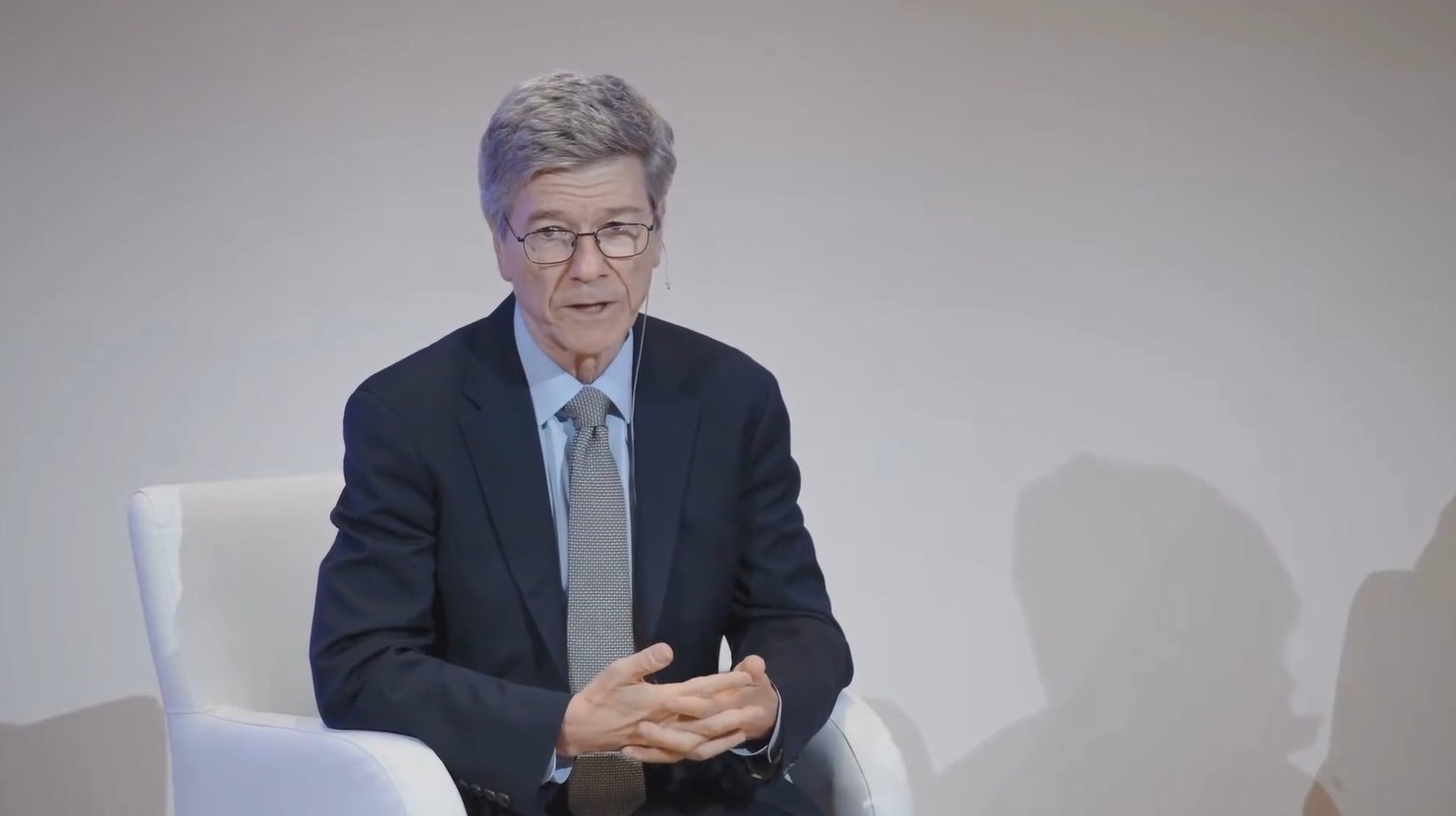
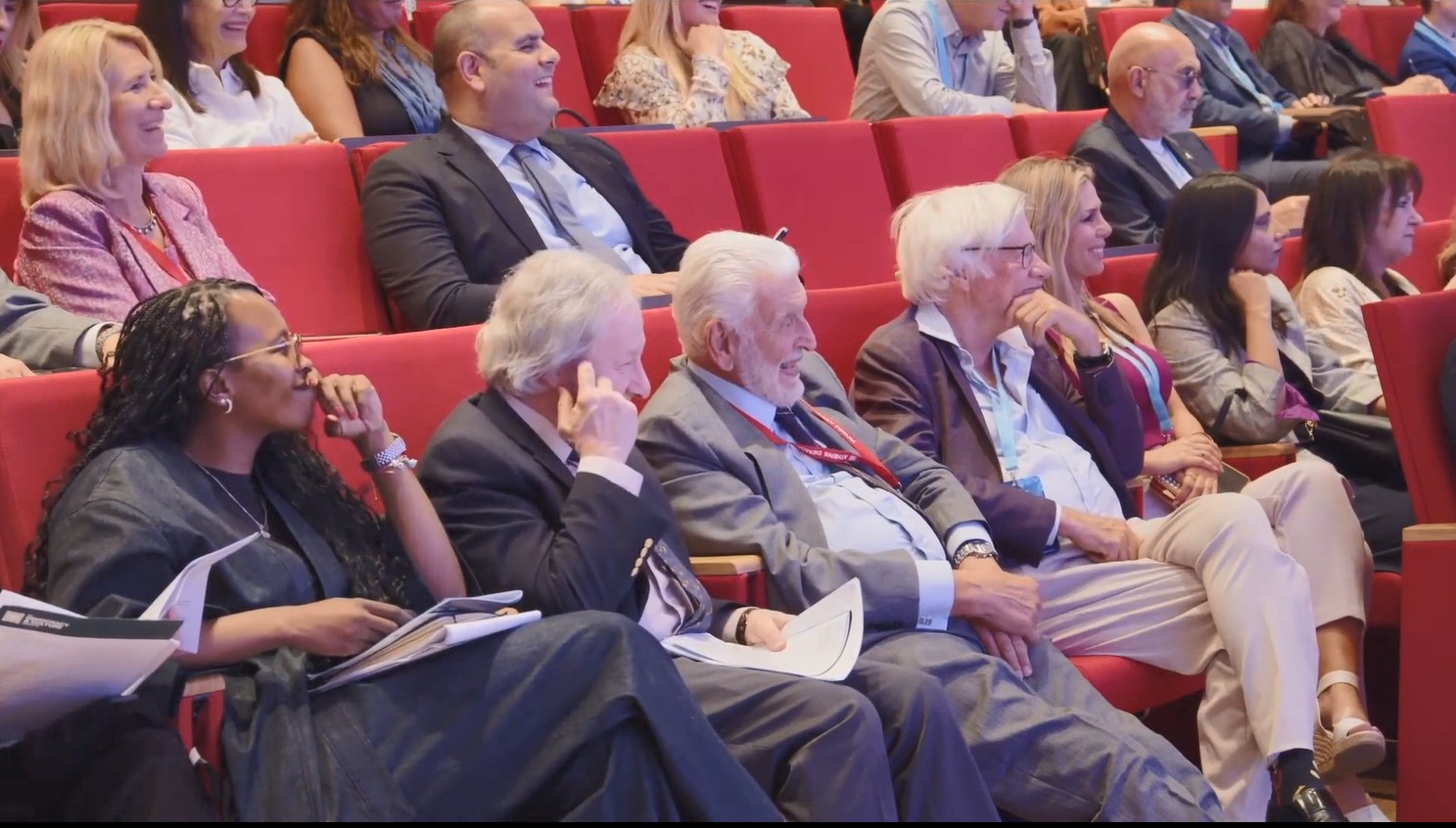
Aristotle: Thank you to the organizers for inviting me back to Athens once again. I left here 2,347 years ago, when my student Alexander suddenly passed away in Babylon. As a Macedonian in Athens, the political situation became unsafe for me, so I left and relocated to the Upper West Side of New York. I've been teaching at Columbia University for over 2,000 years now—or at least it feels that long. But it’s wonderful to be back in Athens. I love this place. We philosophers of the “Peripatetic school” would walk while lecturing, so I'd be delighted to take everyone around the grounds and teach you a few things along the way.
I’ve written about 200 books, a few of which can still be found in some libraries. I’d like to mention three in particular to address your question. I wrote *On the Soul* to help us understand human nature. It was very popular in 330 BCE, even making it to the bestseller list. Next, I wrote what might be considered the first self-help book in Western culture, dedicated to my son Nicomachus, titled *Nicomachean Ethics*. This book was meant to help him grow up; I taught him moderation in all things and how to be a virtuous person.
After finishing *Nicomachean Ethics*, I launched a course on political science, which explored how to maintain virtue as a citizen. Political science and ethics go hand in hand—one helps individuals cultivate themselves, while the other aids political systems in maintaining justice. My students undertook extensive empirical research, gathering constitutions from over 400 Greek city-states. Our analysis revealed that a nation’s happiness is determined by the virtue of its citizens. We also recognized that democracy is not necessarily the key; the type of government—be it rule by one, the few, or the many—is less important than whether it embodies good governance and virtue.
Today, the United States faces a form of democracy that is deeply flawed. Why? Because it lacks virtue. Our leaders are corrupt, they lie, and they lack virtue. It’s a facade of democracy, while behind the scenes, elite dominance and moneyed interests drive most American policies. Additionally, our society no longer has a strong middle class to support genuine democratic welfare.
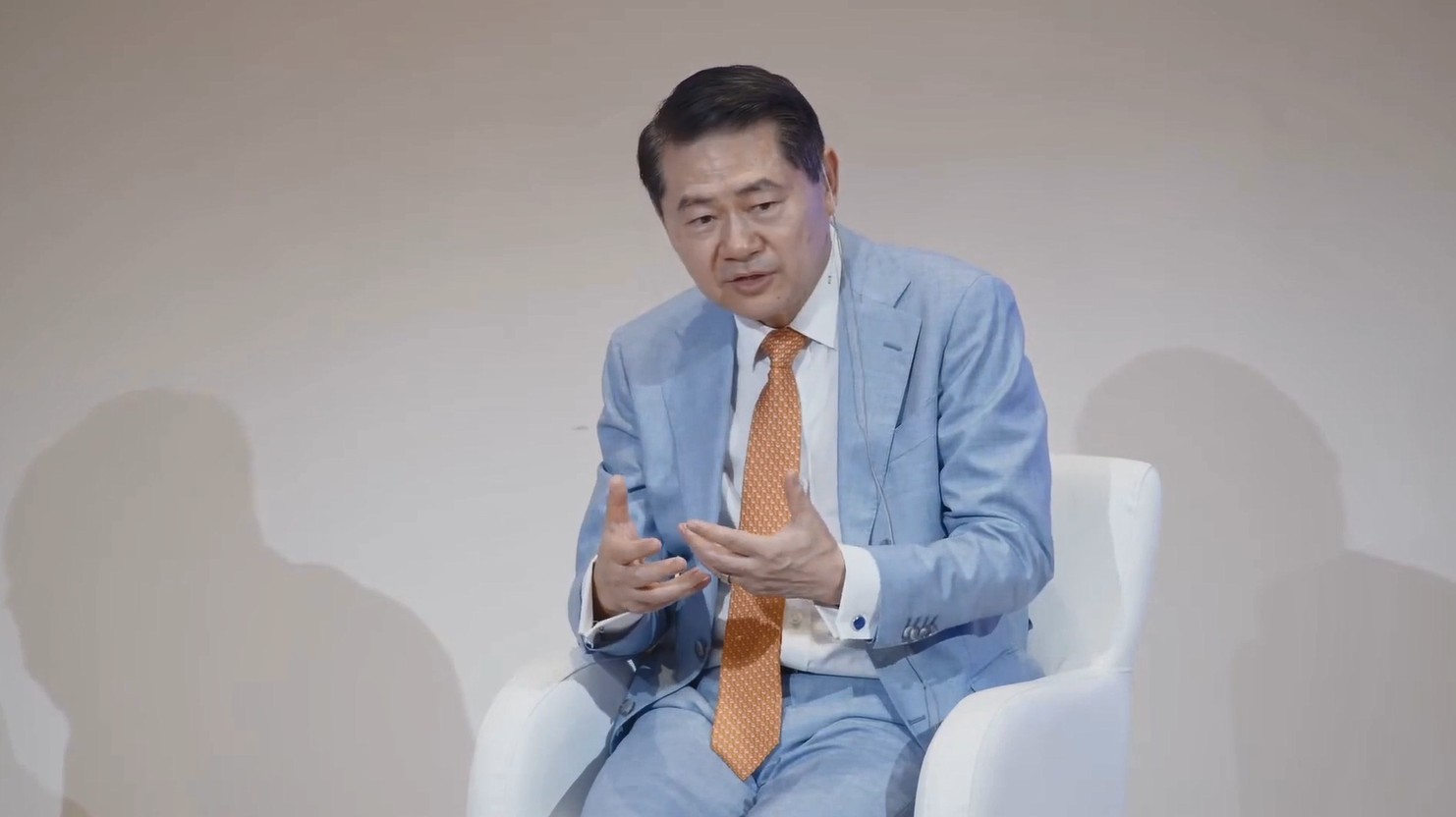
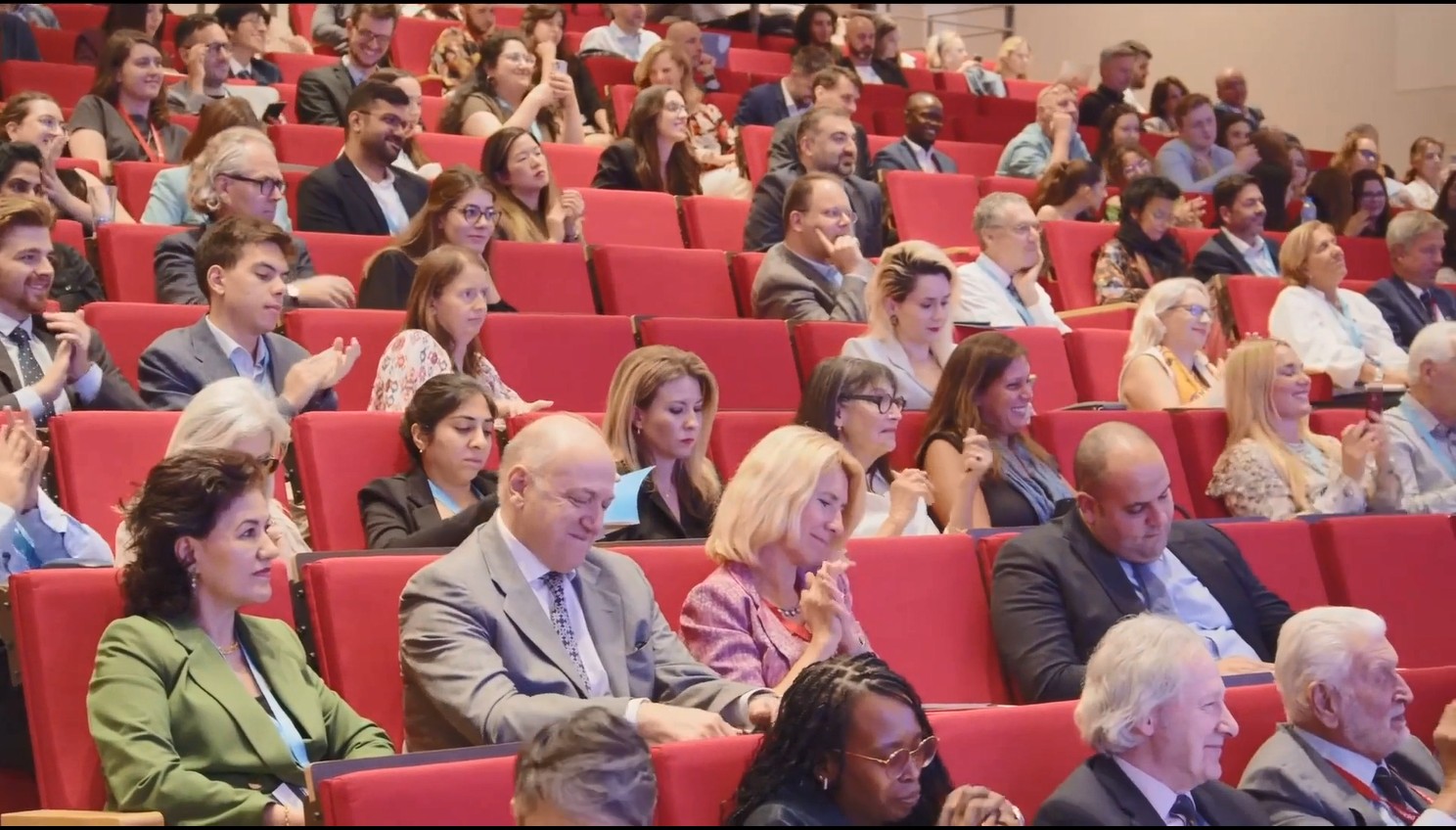
Now, I will hand over the time to Confucius. Thank you for joining us after more than 2,300 years! You are 200 years my senior, and you look well! Welcome to my homeland.
Confucius, also known here as Dr. Henry Wang, Founder and President of the Center for China and Globalization in Beijing: Thank you very much, Farah, and thank you to the Athens Democracy Forum for the invitation. Although I am two centuries younger than Aristotle, I am delighted to continue sharing and practicing ancient Eastern philosophy in today’s world. Confucius lived around 500 BCE, taught 3,000 students, and accumulated a wealth of wisdom. One of the core values in Confucian thought is “benevolence,” which emphasizes that a ruler must genuinely care for the people.
Confucius also stressed the “Doctrine of the Mean,” advocating for a balanced and impartial approach to life. Another important teaching of his is “Do not impose on others what you yourself do not desire,” promoting respect, understanding, and peaceful coexistence among people. Yet, the world today seems to lack such empathy and respect. Aristotle mentioned that the United States today could be described as a democracy filled with corruption and lies, while China is defined as a country with a meritocratic system that values talent. Therefore, I believe we should re-evaluate the governance models of both China and the U.S., adopting a fresh perspective to understand their respective social structures.
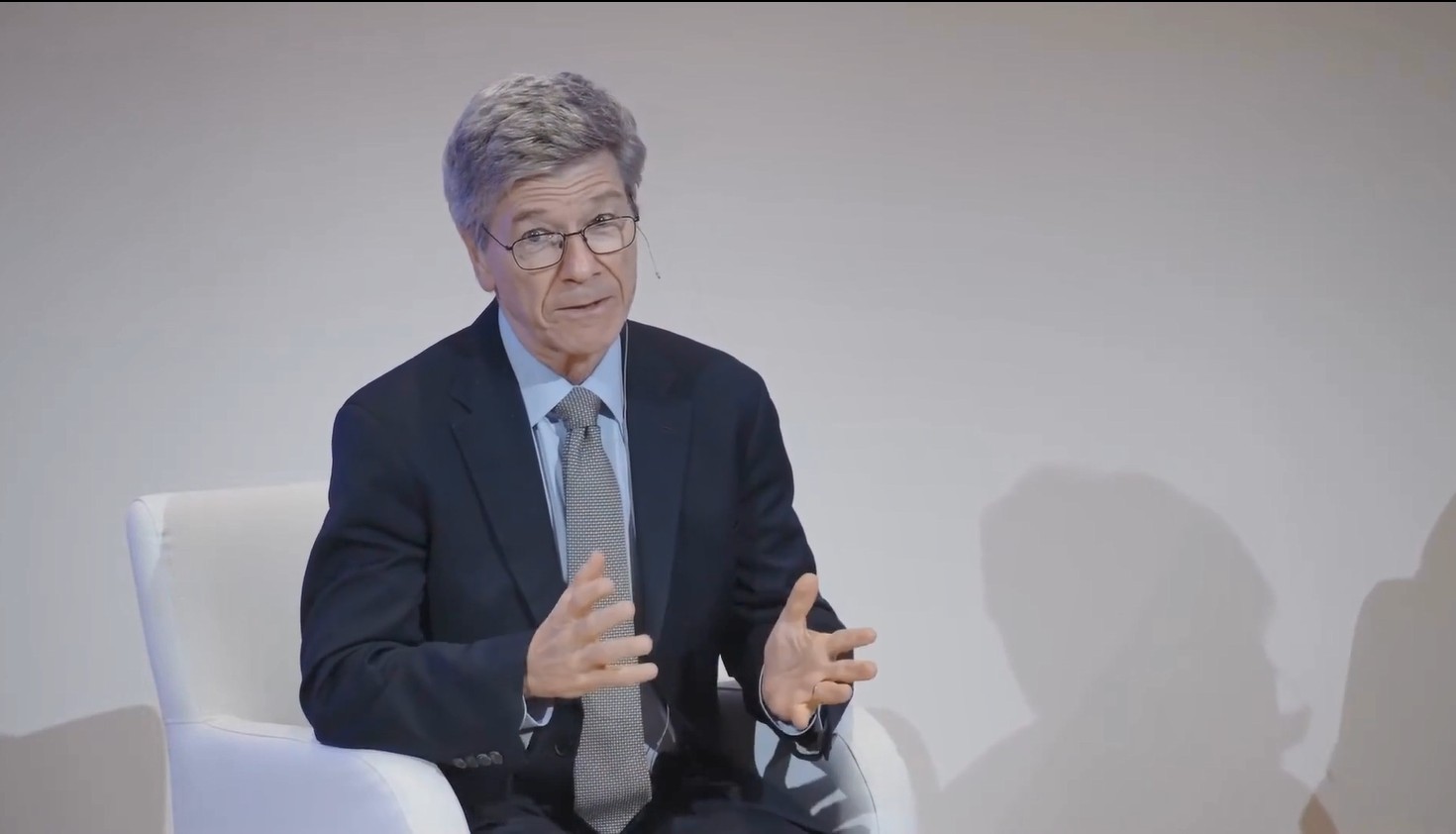
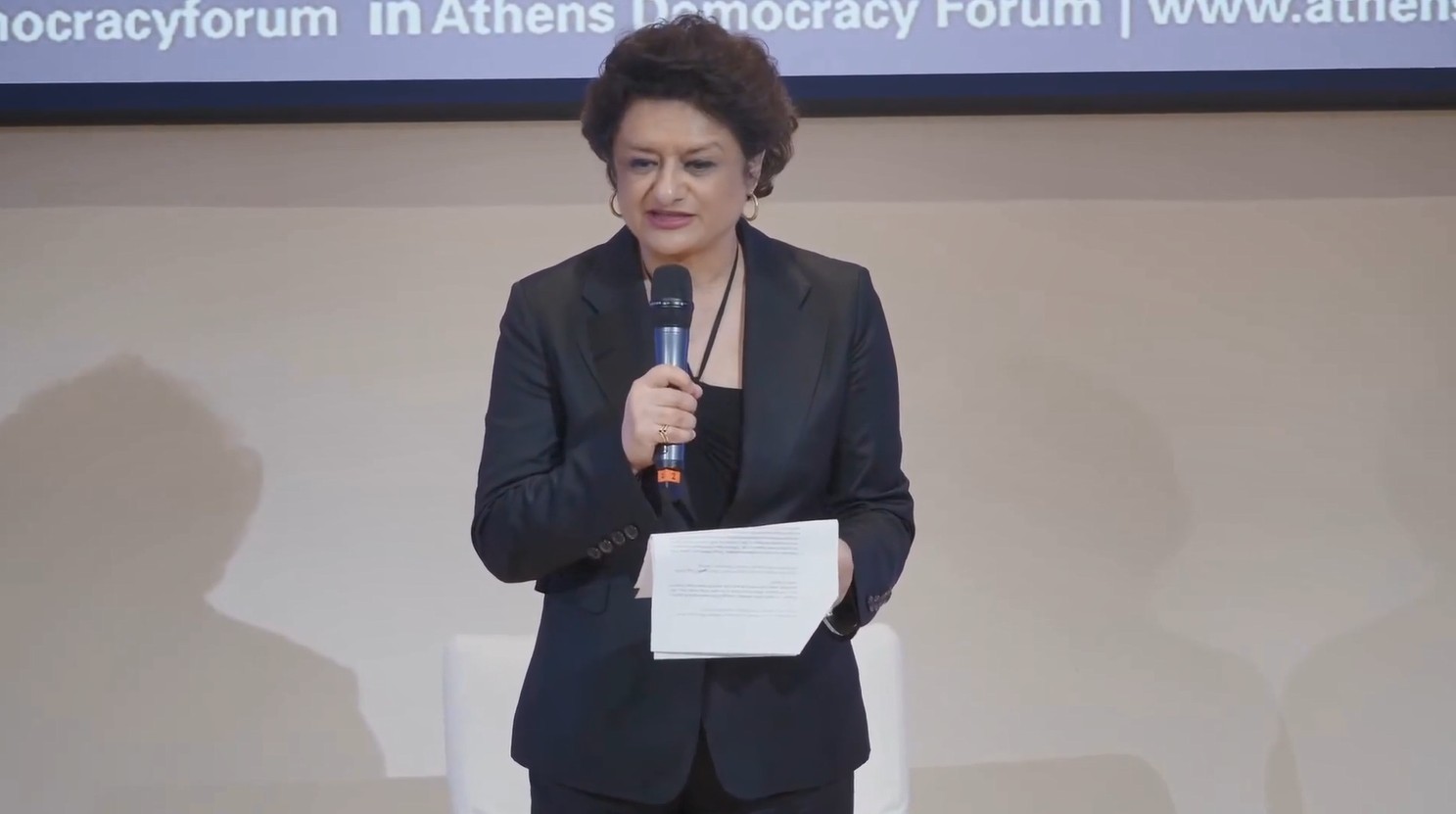
Moderator: Mr. Aristotle, we just heard from Confucius. Your criticism of the United States is also quite pointed, and it seems you often defend America’s adversaries, such as China and Russia. Why is that?
Aristotle replied, "A philosopher's duty is to critique their own society. Just as Confucius traveled among various states throughout his life, trying to counsel rulers, ultimately having to turn to teaching his disciples at the age of seventy, we too face significant challenges in understanding ourselves. As inscribed on the Temple of Apollo, 'Know yourself,' we must first strive to understand ourselves. In this respect, the United States lacks self-awareness, and this is at the heart of my criticism. I believe that recognizing and addressing our own shortcomings is the key to achieving peace."
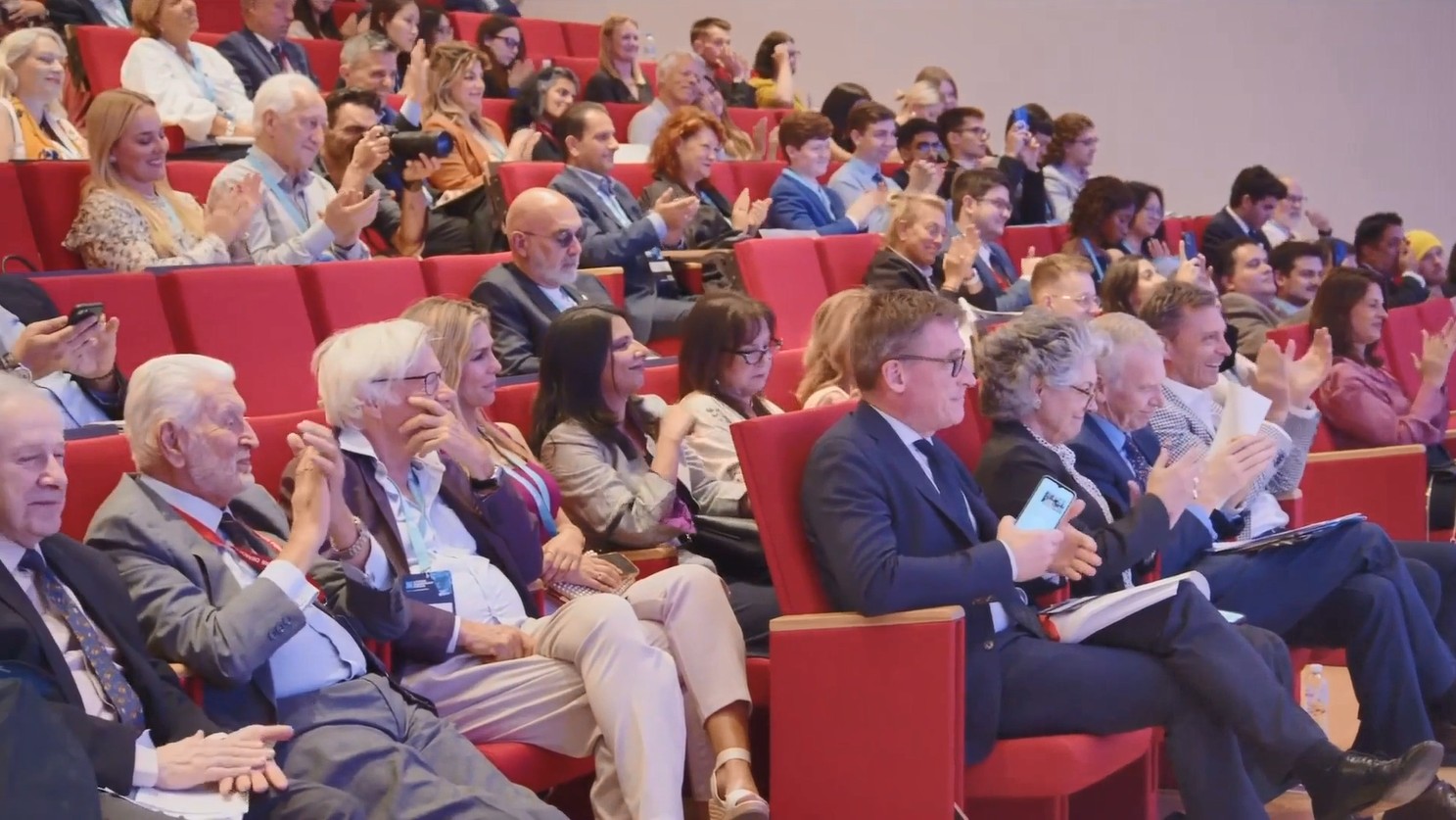
Ladies and gentlemen, I would like to thank Aristotle and Confucius for this wonderful dialogue.
[Applause]
Finally, please allow me to introduce our next speaker, Jonathan Vavrio, Secretary General of the Ministry of Foreign Affairs of Estonia. Jonathan, the floor is yours.
